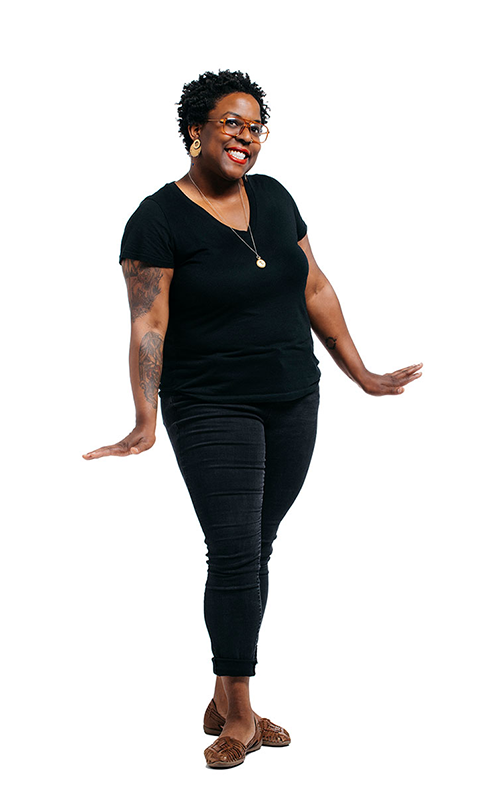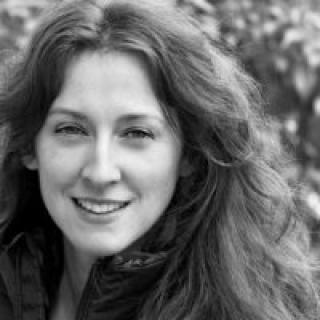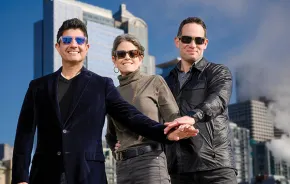
It’s no secret that being outdoors is good for kids. There’s abundant research on the topic, linking more time outdoors to everything from better performance in class to healthier physical and mental development.
But as we diligently work to get kids more and better access to nature, have we missed something? More specifically, has our racialized American society largely missed an important barrier that keeps many — and most particularly people of color — from experiencing nature as a free, safe place?
Such is the question at the center of Jéhan Òsanyìn’s work.
A Seattle-based storyteller, poet, performer and outdoor educator, Òsanyìn spent years leading educational outdoor adventures. Her adventures in backpacking, whitewater rafting and canoeing as a Black woman inspired her to found Earthseed Seattle in 2013.
Through Earthseed, Òsanyìn organizes workshops in which kids and adults use theater to make outdoor spaces more inclusive, or, as Òsanyìn explains, to “decolonize wild spaces and the bodies that pass through them.” The organization in turn supports the WildSeed outdoor school, a nonprofit that hosts outdoor hikes, climbs and theater workshops for people of color.
Her work is getting attention. Earlier this year, Òsanyìn became a Creativity Connects fellow with the National Endowment for the Arts. The goal of her fellowship: Create a piece of theater that “explores how to have difficult conversations with the young people in our lives.”
We spoke with Òsanyìn about that project and her other work with Pacific Northwest families.
What does “decolonize wild spaces” mean exactly?
Decolonizing wild spaces means breaking the rules that colonizers actively — such as with segregation — and passively — such as with socially constructed cultural norms — enforce on them.
[When I was growing up,] there were a lot of people who had a say in who I was and what I was supposed to value in my formative years. I was taught that being Black had rules, being a woman had rules, being the child of an immigrant had rules. As I grew older, I realized that a lot of the rules were hurting me. So, I found freedom in defining myself in accordance with my own beliefs instead of in opposition to the rules I’d internalized.
The simple act of folks from marginalized communities being in wild and wilderness spaces is revolutionary. … Decolonizing bodies is having them just show up in colonized spaces. Then, the act of loving the way you look and move when there aren’t any mirrors or social constructs to combat that is the act of decolonization.
What — or who — inspired you to start Earthseed Seattle and WildSeed?
Harriet Tubman. Sometime around 2008, I remember thinking that Harriet Tubman was the original backpacker. Because of her own moral compass or sheer will, she wanted to lead people from a place of literal slavery to a place of freedom. I was in the Shenandoah National Forest and that thought wouldn’t leave me alone.
Where does your background in theater come into this?
Theater gave me a place to feel the emotions that are in many ways illegal for a Black woman to feel. So frequently, strong emotions are penalized by our society when they’re emoted by someone who looks like me, [but] onstage, I could be full of fury or rage and the audience believed me. They believed my story.
Earthseed and WildSeed are my ways of seeing people, providing a space to see themselves and providing space for people’s stories to be witnessed. They are my way of validating others’ identities while facilitating opportunities for them to grow in all of the beautiful ways human beings are capable of growing.
What impact have you seen your work have on young participants?
I’ve noticed the stories young people tell when given the opportunity. One group of theater students I was working with told a story that addressed gun violence in schools. One of the things I loved about that piece was that they didn’t offer up a solution.
I love stories that ask the audience to think and feel. In this case, those students did that while also refusing to make the ending beautiful. They left room for the audience to be a character.
Wild spaces are neither accessible nor comfortable for all young people. How can this change?
We need to trust in youth to great proportions, we need to invest money in youth, we need to surround them with unwavering support and provide them whatever they need to address the issues that they deem applicable in the ways that they value.











